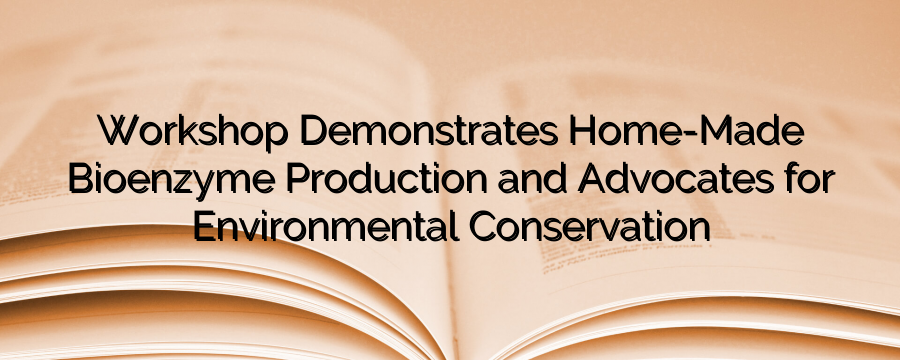
IT News
Imphal, Mar. 3:
In a three-day workshop titled “Listening to Our Environment,” participants were shown how to create bioenzymes at home. By combining Gur or Molasses (Chuhi) with kitchen waste or citrus fruit peels such as lemon, orange, pineapple, and water in specific ratios, individuals can produce bioenzymes. These enzymes, when left to ferment in a plastic bottle for 45 days in summer or 3 months in winter, can yield effective household cleaning agents, including solutions for toilets, floors, laundry, utensils, and kitchen grease.
Experts at the workshop emphasized the health benefits and affordability of these bioenzymes. Dr. Deshworjit Ningombam, Assistant Professor at the Department of Botany, Jadonang Memorial College, Longmail, Noney, highlighted the crucial role of Manipur’s 390 sacred groves in preserving the state’s rich biodiversity. He also underscored the urgent need to conserve these sacred groves.
The workshop, held at the conference hall of TS Paul Manipur Women College, attracted college teachers, students, and environmental enthusiasts. It featured informative sessions on Leirol Esei by Khumanthem Nganthoi Leima, M.A., who emphasized the preservation of traditional knowledge and cultural ties with nature, as documented in Leirol puya, ancient Manipuri texts.
These texts, written in old Manipuri language, contain folk songs passed down from teacher to pupil, reflecting the close relationship between ancestors and nature. On the workshop’s final day, Radhamohan Thokchom, Maichou Atomba, from Sana Konung, Utra Sanglen, delivered a lecture on Umang Lai and its societal significance, highlighting how Umang Lai Haraoba rituals instill values of social conduct, discipline, and sportsmanship.
The workshop, organized by Happy InKhol in collaboration with the Department of Environmental Science, Department of Biotechnology, EcoClub, UBACell, T.S Paul Manipur Women’s College (TSPMWC), Mongshangei, and Mid as Touch (Environmental Organization), Imphal, received support from the Henry Martyn Institute (HMI) Hyderabad and the International Centre for Research, Interfaith Relations, and Reconciliation.
